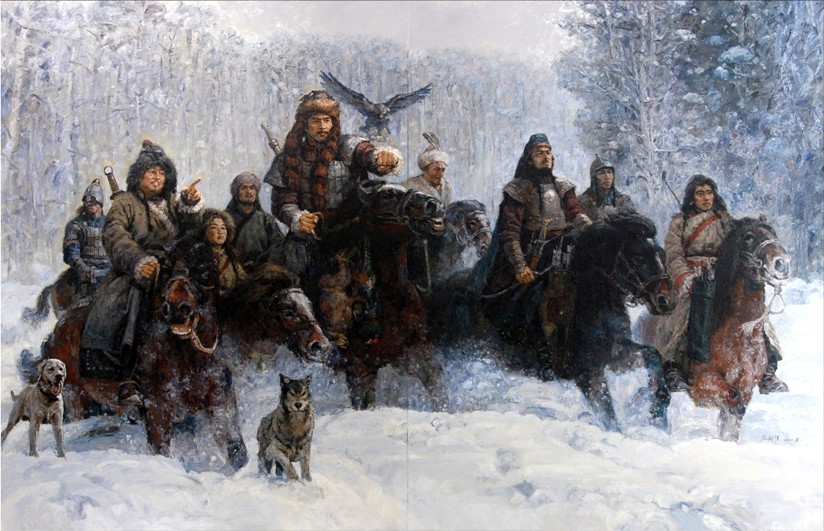Xiongnu on the hunt by Zuo Guoshun
"By this time China, the land of caps and girdles, was divided among seven states, three of which bordered the territory of the Xiongnu. Later, while the Zhao general Li Mu was living, the Xiongnu did not dare to cross the border of Zhao.

Finally Qin overthrew the other six states, and the First Emperor of the Qin dispatched Meng Tian to lead a force of 100,000 men north to attack the barbarians. He seized control of all the lands south of the Yellow River and established border defenses along the river, constructing forty-four walled district cities overlooking the river and manning them with convict laborers transported to the border for garrison duty. He also built the Direct Road from Jiuyuan to Yunyang. Thus he utilized the natural mountain barriers to establish the border defenses, scooping out the valleys and constructing ramparts and building installations at other points where they were needed. The whole line of defenses stretched over 10,000 li from Lintao to Liaodong and even extended across the Yellow River and through Yangshan and Beijia.
At this time the Eastern Barbarians were very powerful and the Yuezhi were likewise flourishing. The Shanyu or chieftain of the Xiongnu was named Touman. Touman, unable to hold out against the Qin forces, had withdrawn to the far north. where he lived with his subjects for over ten years. After Meng Tian died and the feudal lords revolted against the Qin, plunging China into a period of strife and turmoil, the convicts which the Qin had sent to the norther border to garrison the area all returned to their homes. The Xiongnu, the pressure against them relaxed, once again began to infiltrate south of the bend of the Yellow River until they had established themselves along the old border of China."
-Sima Qian, Records of the Grand Historian (translated by Burton Watson)

 |
| Xiongnu by Zuo Guoshun. Special Exhibit: Xiongnu, Henan Provincial Museum, Zhengzhou. Image from Gary Todd's flickr. |
Source:
Quote:
Sima Qian, Records of the Grand Historian (translated by Burton Watson)


Comments
Post a Comment